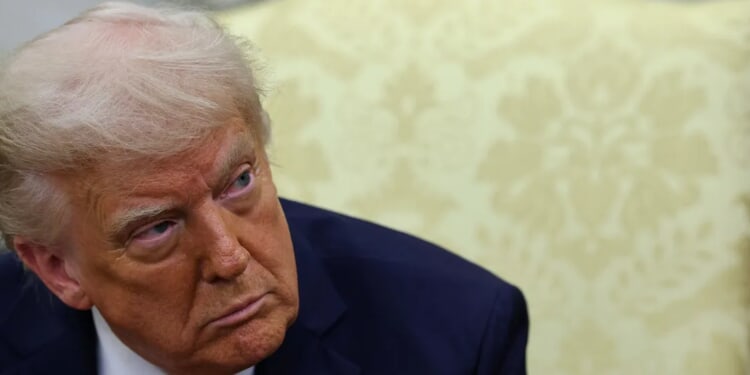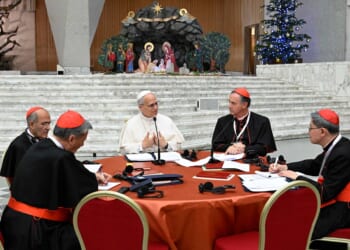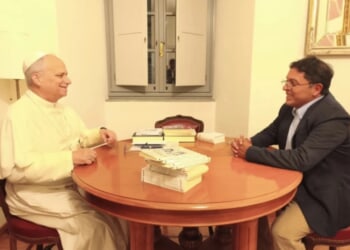WASHINGTON — The Supreme Court seemed inclined Wednesday to limit President Donald Trump’s tariffs.
While both sides faced skepticism from the justices, Solicitor General John Sauer faced especially tough questions during the first half of oral arguments as he laid out why Trump was legally allowed to impose tariffs using emergency powers.
“It’s a congressional power, not a presidential power, to tax,” Justice Sonia Sotomayor told Sauer. “And you want to say tariffs are not taxes, but that’s exactly what they are. They’re generating money from American citizens.”
Trump cited two emergencies to impose his tariffs: the fentanyl crisis for a first set on Canada, China and Mexico in February and a growing trade deficit for a second set of “Liberation Day” tariffs in April, which imposed a baseline 10% tariff on imports, with increasing rates depending on the country.
A “common sense” reading of Congress’ language granting the president power to “regulate importation” under the International Emergency Economic Powers Act (IEEPA) should include tariffs, even if the word is not explicitly used, Sauer argued. (RELATED: Four Republicans Team Up With Democrats To Block Trump’s Canada Tariffs)
“Congress uses tariffs in other provisions, but not here,” Chief Justice John Roberts noted. “And yet the justification is being used for a power to impose tariffs on any product, from any country, in any amount, for any length of time. That does seem like it’s major authority.”
“The point of the statute is to confer major powers to address major questions, which are emergencies,” Sauer said.
Two legal doctrines were top of mind for the justices: the major questions doctrine and the nondelegation doctrine. The first requires the executive branch to cite a clear congressional authorization when taking actions with great economic or political significance, and the second prevents Congress from delegating too much of its authority to the executive branch.
Justice Neil Gorsuch observed that the administration’s position would allow a future president to cite a climate change threat to impose a tariff on auto parts, a point Sauer conceded, though he noted the Trump administration would consider such a threat a “hoax.”
“Congress, as a practical matter, can’t get this power back once it’s handed it over to the president,” Gorsuch said. “It’s a one-way ratchet toward the gradual but continual accretion of power in the executive branch and away from the people’s elected representatives.”
Justice Barrett asks about refunding tariff revenue should President Trump lose the case: “If you win, tell me how the reimbursement process would work. Would it be a complete mess?”
Neal Katyal: “We don’t deny that it’s difficult.” pic.twitter.com/WsiVGTyBO9
— CSPAN (@cspan) November 5, 2025
Still, attorneys representing small businesses and states challenging Trump’s tariffs also faced difficult questions.
Even if tariffs are a tax, Roberts noted they are still a “foreign-facing tax” that implicates “very directly the president’s foreign affairs power.”
“I don’t think you can dismiss the consequences,” Roberts said. “We didn’t stay this case. And one thing is quite clear…the foreign-facing tariffs… in several situations were quite effective in achieving particular objectives.”
Several justices, particularly Justice Brett Kavanugh, were interested in hearing about precedent that may support the administration’s position.
A key example cited by the administration was President Richard Nixon’s 1971 imposition of a 10% tariff on all imports through a statute that was the precursor to IEEPA, which was upheld by an appeals court.
Kavanaugh later questioned why IEEPA would allow the president to shut down all trade, a seemingly greater power, but not impose tariffs.
“Why would a rational Congress say, yeah, we’re going to give the president the power to shut down trade…but can’t do a 1% tariff?” Kavanaugh questioned.
Justice Amy Coney Barrett also questioned what the reimbursement process would look like for companies if the tariffs were found to be illegal, suggesting it could be a “mess.”
All content created by the Daily Caller News Foundation, an independent and nonpartisan newswire service, is available without charge to any legitimate news publisher that can provide a large audience. All republished articles must include our logo, our reporter’s byline and their DCNF affiliation. For any questions about our guidelines or partnering with us, please contact licensing@dailycallernewsfoundation.org.








![Florida Officer Shot Twice in the Face During Service Call; Suspect Killed [WATCH]](https://www.right2024.com/wp-content/uploads/2025/12/Inmate-Escapes-Atlanta-Hospital-After-Suicide-Attempt-Steals-SUV-Handgun-350x250.jpg)







